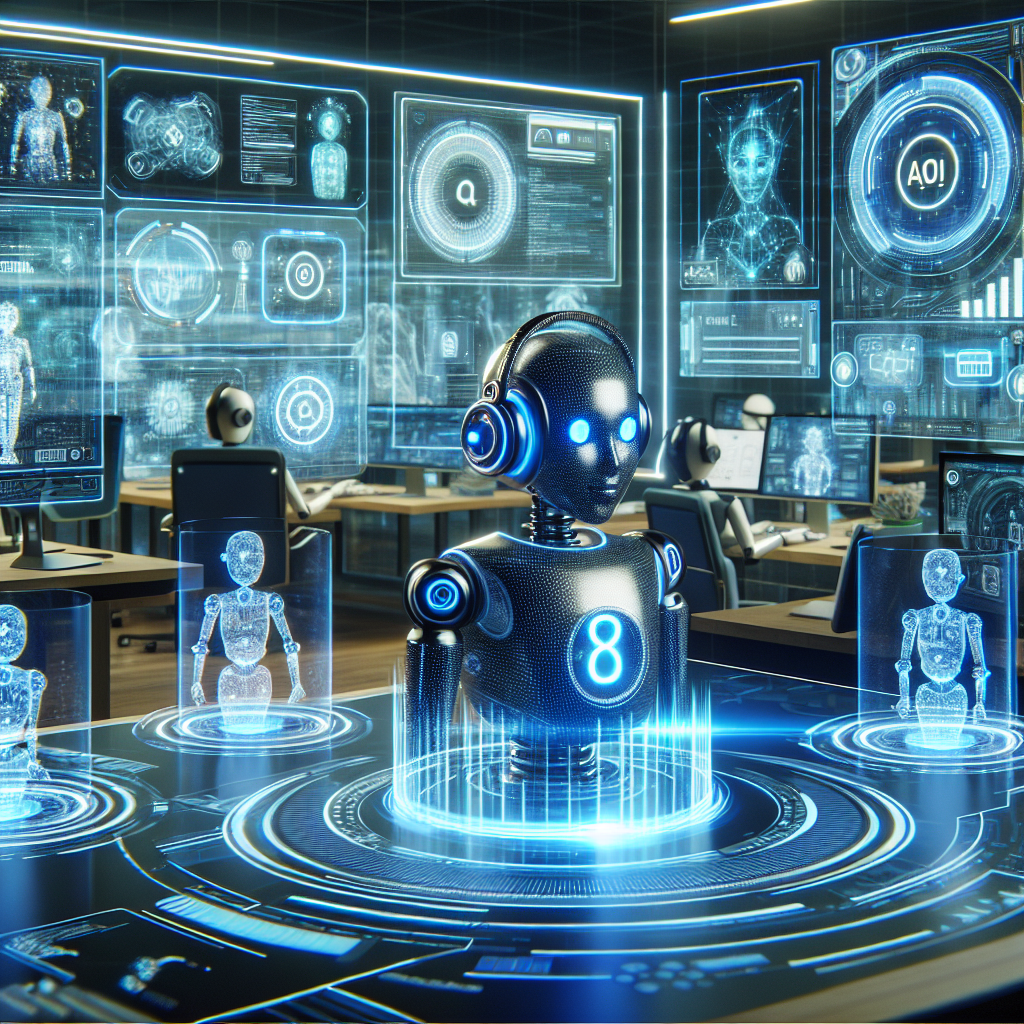In recent years, the customer service industry has undergone a significant transformation with the rise of artificial intelligence (AI) technology. AI-driven innovation has revolutionized the way businesses interact with their customers, providing faster, more efficient, and personalized service. As AI continues to evolve, the future of customer service is poised to become even more advanced, with AI-powered solutions driving innovation and improving the customer experience.
AI-driven innovation in customer service
AI-driven innovation in customer service has led to the development of chatbots, virtual assistants, and other AI-powered tools that can handle customer inquiries, complaints, and requests in real-time. These tools use natural language processing and machine learning algorithms to understand and respond to customer queries, providing instant and accurate assistance.
One of the key benefits of AI-driven customer service is its ability to provide round-the-clock support. AI-powered chatbots can handle customer inquiries at any time of day or night, ensuring that customers receive prompt assistance whenever they need it. This 24/7 support can help businesses improve customer satisfaction and loyalty, as customers can get help with their queries at any time, without having to wait for a human agent to be available.
Another benefit of AI-driven customer service is its ability to provide personalized assistance to customers. AI-powered tools can analyze customer data and behavior to provide tailored recommendations and solutions, making the customer experience more personalized and relevant. This personalized assistance can help businesses enhance customer engagement and drive sales, as customers are more likely to purchase products or services that are recommended based on their preferences and past interactions.
AI-driven innovation in customer service has also led to improvements in efficiency and cost-effectiveness. AI-powered tools can handle a large volume of customer inquiries simultaneously, reducing the need for human agents to handle repetitive or low-value tasks. This can help businesses save time and resources, allowing human agents to focus on more complex and high-value interactions with customers.
The future of customer service: AI-driven innovation
As AI technology continues to evolve, the future of customer service is likely to become even more advanced and innovative. AI-powered tools are expected to become even more sophisticated, with capabilities such as emotional intelligence and predictive analytics that can help businesses better understand and respond to customer needs.
One of the key trends in the future of customer service is the integration of AI with other emerging technologies, such as the Internet of Things (IoT) and augmented reality (AR). By combining AI with IoT devices and AR applications, businesses can provide more seamless and personalized customer experiences, such as proactive maintenance alerts for smart devices or virtual product demonstrations through AR.
Another trend in the future of customer service is the use of AI-powered voice assistants, such as Amazon’s Alexa or Apple’s Siri, to provide hands-free and voice-activated customer support. Voice assistants can help businesses streamline customer interactions and provide a more convenient and intuitive customer experience, especially for customers who prefer to communicate through voice rather than text.
AI-driven innovation in customer service is also expected to lead to improvements in self-service options for customers. AI-powered chatbots and virtual assistants can provide customers with self-service tools and resources, such as troubleshooting guides, product recommendations, and order tracking, that can help them resolve issues on their own without the need for human assistance. This can help businesses reduce the number of inquiries handled by human agents and improve overall customer satisfaction.
FAQs about AI-driven customer service
Q: What is AI-driven customer service?
A: AI-driven customer service refers to the use of artificial intelligence technology, such as chatbots, virtual assistants, and machine learning algorithms, to provide automated and personalized support to customers. AI-driven customer service can help businesses improve efficiency, reduce costs, and enhance the customer experience.
Q: How can AI-driven customer service benefit businesses?
A: AI-driven customer service can benefit businesses in several ways, including providing round-the-clock support, personalized assistance, and improved efficiency. AI-powered tools can handle a large volume of customer inquiries simultaneously, reducing the need for human agents to handle repetitive tasks and allowing them to focus on more complex interactions.
Q: What are some examples of AI-driven customer service tools?
A: Some examples of AI-driven customer service tools include chatbots, virtual assistants, and voice-activated customer support services. These tools use natural language processing and machine learning algorithms to understand and respond to customer queries, providing instant and accurate assistance.
Q: What are some trends in the future of customer service?
A: Some trends in the future of customer service include the integration of AI with other emerging technologies, such as IoT and AR, the use of voice assistants for hands-free customer support, and improvements in self-service options for customers. These trends are expected to drive innovation and improve the customer experience in the coming years.
In conclusion, AI-driven innovation is shaping the future of customer service, providing businesses with advanced tools and technologies to improve efficiency, reduce costs, and enhance the customer experience. As AI technology continues to evolve, the future of customer service is likely to become even more advanced and innovative, with AI-powered solutions driving innovation and improving the customer experience. Businesses that embrace AI-driven customer service are well-positioned to stay ahead of the competition and deliver exceptional customer support in the digital age.

